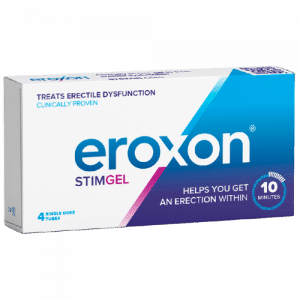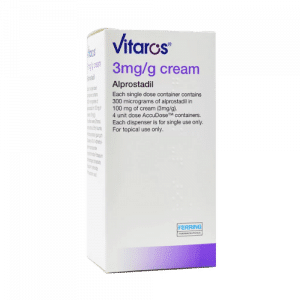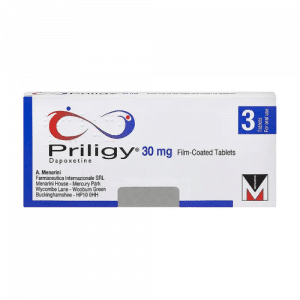
Malarone is a potent antimalarial medication combining atovaquone (250mg) and proguanil (100mg) to prevent and treat malaria caused by P. falciparum and P. vivax. Ideal for travelers to malaria-prone regions, Malarone offers a simple dosage regime suitable for short trips and last-minute travels. With a high effectiveness rate and fewer side effects compared to other antimalarials, Malarone ensures your health safety during your adventures abroad. Start your consultation today to see if Malarone is right for you.
Malarone
£44.24 – £343.00
Product Information
What does it do?
Malarone is a combination drug, containing atovaquone (250mg) and proguanil (100mg). Malarone kills malaria parasites in the blood and the liver. It is used as a preventative method against malaria caused by P. falciparum and P. vivax.
Stronger doses of the drug are used to treat falciparum malaria.
Who is at risk of malaria?
Malaria is a tropical disease carried by mosquitoes in infected areas and is common in areas such as Southern Asia, Africa, and South America. Travellers to these places are at risk of getting malaria from mosquito bites. Before traveling, it is important to check the malaria risk for the specific country and time of year you are visiting. Consult the NHS Fit for Travel website or consult a travel medicine professional for more advice.
People who previously built up immunity by living in malaria areas can lose that immunity over time. The recommended tablets for an area can change from time to time.
Children and women who are pregnant or breastfeeding are at increased risk and are more likely to develop severe/fatal malaria.
See a doctor immediately if you get flu-like symptoms such as a high temperature, headache, cough, body aches, shivering, and tiredness for up to one year after leaving a malaria risk area, as this may indicate a malaria infection. Malaria tablets reduce the risk but are not 100% effective.
Why Malarone?
Malarone is one of the choices of antimalarial drugs. Its simple dosage regime, which is shorter than other malaria prevention medication, means it is suitable for last-minute holidays and trips of shorter duration.
The Fit for Travel website has details of recommended malaria tablets (and other travel health advice) for each destination.
How to take Malarone
Your Malarone prescription needs to be started 1-2 days before entering an area with malaria risk. Take 1 tablet every day during your stay and for 7 days after leaving the area.
Take the tablet at the same time once a day with food or a milky drink. This helps it to be absorbed into the body and will reduce the risk of gut-related side effects. For the medication to be effective the course must be completed. It takes 7 days to completely clear any parasites in the blood from a malaria-infected mosquito bite.
If you forget to take a dose just take your next dose as soon as you remember. Then continue your treatment as before.
How effective is it?
Malarone is over 90% effective at preventing P. falciparum malaria in travellers. However preventative measures should also be taken to decrease the risk of being bitten in high-risk areas.
Possible side effects of Malarone
All medication affects patients individually, with some possible side effects being more common than others. Fewer people have side effects with Malarone compared with other antimalarials.
It is often recommended to try a couple of doses of the medication in the weeks before travel so that any side effects can be assessed and a different antimalarial taken if necessary.
Common side effects (1 in 10 people) include headaches, nausea, vomiting, diarrhoea, abdominal pain, loss of appetite, coughing, dizziness, fever, rash or itching, insomnia, abnormal dreams, and anaemia.
A full list of possible side effects can be found in the manufacturer’s patient information leaflet supplied with Malarone tablets.
What should I do if I experience side effects from Malarone?
- Try to persevere with the medication.
- Take it at the same time each day, with food or a milky drink. It may help to take it at bedtime or with the evening meal.
- Stick to plain, bland food.
- You can treat nuisance side effects with commonly used medicines. Headache can be treated with paracetamol for example. For nausea/vomiting, try an anti-sickness medication such as promethazine.
- If you are sick (vomit) within 1 hour of taking your Malarone tablet, take another dose straight away.
- If you feel dizzy, do not drive or operate machinery.
Who should not take Malarone?
During a Dr Fox online consultation, you will be required to complete an assessment questionnaire to determine your suitability for antimalarial medication. You should not take Malarone without further consultation with your GP if you:
- Are allergic to atovaquone or proguanil.
- Are pregnant or breastfeeding or intend to be during your trip?
- Have been diagnosed with severe kidney disease.
- Are currently taking:
- Warfarin-type medicines to thin the blood.
- Metoclopramide is used to treat nausea and vomiting.
- Tetracycline, rifampicin, or rifabutin antibiotics.
- Antiretroviral drugs for HIV.
- Etoposide is used to treat cancer.
If you start taking any other medicines whilst taking Malarone speak to your doctor or pharmacist.
Malarone Adult tablets are recommended for preventing malaria in people over 40kg. Malarone Paediatric tablets are available for children from 11kg on prescription from GPs, travel clinics, or prescribing pharmacists.
Dr Fox can only prescribe medicine to adults (18 years or over). Further information about malaria tablets for children.
Other measures to prevent malaria
In addition to taking recommended malaria tablets, malaria risk can also be reduced by avoiding mosquito bites.
Mosquitoes can bite at any time of day. Most bites by malaria mosquitoes occur in the evening and overnight between dusk and dawn. In contrast, dengue fever mosquitoes tend to bite during the day.
- Wear long-sleeved clothing and long trousers if you are out at dusk, dawn, and at night. Several companies sell insect-resistant travel clothing pre-treated with insecticide (permethrin).
- Use insect repellent containing DEET on exposed skin and under thin clothing, particularly around the ankles. The best strength DEET is 50% There is no added benefit to using higher concentrations. Other repellents containing picaridin 20% or lemon eucalyptus 30% are less effective than DEET and must be reapplied very frequently.
- Insect-repellent room sprays, mosquito coils, and heating insecticide-impregnated tablets all reduce the risk of bites and should be used to kill mosquitoes in bedrooms before going to bed.
- Where possible sleep in screened rooms and use a mosquito net, preferably one impregnated with insecticide (permethrin). Mosquitoes are deterred by air conditioning but not fans.
Ultrasound devices, mobile phone apps, garlic, Vitamin B, marmite, homeopathic products, tonic water, alcohol, tea tree oil, and citronella DO NOT prevent bites.
For further information see Travel Health Pro – Insect and tick bite avoidance and NHS – Malaria Prevention.
Related Products
-
Erectile dysfunction medication
Eroxon ED Treatment Gel – 4 Pack
Rated 0 out of 5£25.00 Add to basket -
-
-




